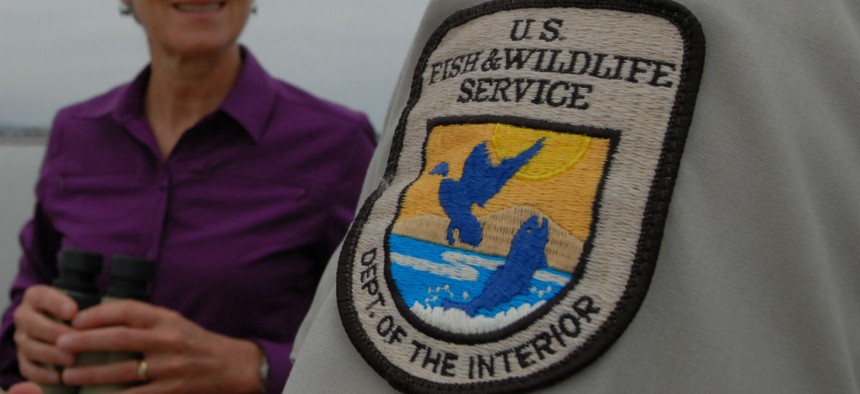
Interior Department file photo
Fish and Wildlife Service Supervisors Disciplined for Retaliation
Maintenance worker blew the whistle on a boss who used agency resources to protect his home.
Three U.S. Fish and Wildlife Service supervisors were disciplined for retaliating against an employee who blew the whistle on his boss’ improper use of agency property to fortify his home against flooding, the Office of Special Counsel announced on Tuesday. The managers also violated time-and-attendance procedures.
The punishments—suspensions without pay, served last month—resulted from an OSC inquiry into disclosures by Michael J. Hames, Jr., a maintenance worker at the agency-run Deep Fork National Wildlife Refuge in Oklahoma. Hames reported that his second-line supervisor in March 2008 directed his subordinates to drive government vehicles with taxpayer-purchased sandbags to his home, according to OSC.
That prompted the suspension of Hames’s second-line supervisor, after which “Hames was subjected to a hostile environment and increased scrutiny that led to a proposal to remove Mr. Hames,” OSC said. The Fish and Wildlife Service then presented Hames with a “last-chance agreement that he could keep his job if he accepted a transfer and agreed to never speak about his disclosure, including waiving his rights to file a complaint with OSC or the Merit Systems Protection Board.” Hames refused to sign the agreement and was terminated in 2012.
Hames then appealed to the MSPB, whose administrative judge found that his dismissal was retaliation for whistleblowing, a prohibited personnel practice. Hames was restored to his job, and the judge referred the case to OSC for potential disciplinary action.
The Fish and Wildlife Service issued a 14-day suspension for the second-line supervisor; a 10-day suspension for the first-line supervisor; and a five-day suspension for the official who enforced the retaliatory last-chance agreement that forbade the whistleblower from discussing his disclosure. FWS also agreed to conduct new training on retaliation against whistleblowers and other prohibited action for all employees at the Deep Fork refuge and the Sequoyah National Wildlife Refuge, also in Oklahoma.
”Whistleblowers should never face retaliation for disclosing improper acts,” said Special Counsel Carolyn Lerner. “The discipline of these supervisors should help send a signal that retaliation is not tolerated.”
Asked to respond, Fish and Wildlife Service spokesperson Beth Britt told Government Executive the agency considers the case closed. "At issue is an internal personnel matter in which the case has been settled," she said, "and those responsible have completed the required settlement terms."
NEXT STORY: Why Top Executives Keep Employees in The Dark







